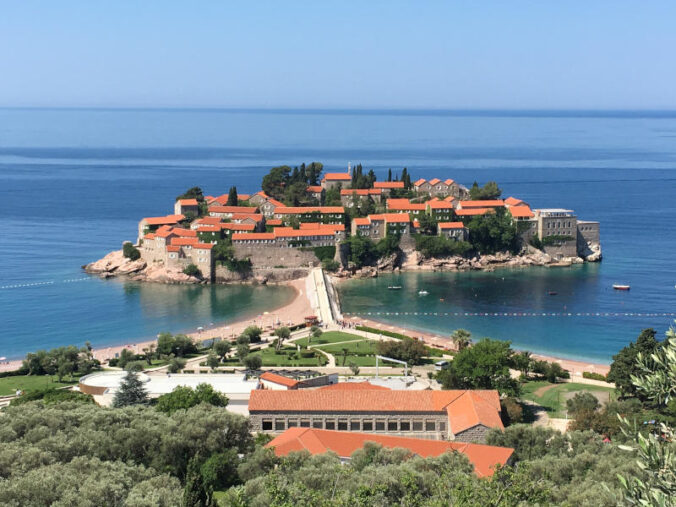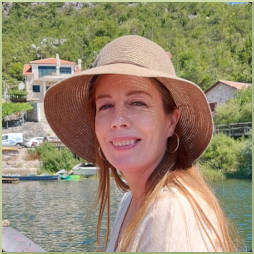So, you heard about the low tax rates and cost of living, you want to retire somewhere sunny, or you came here on holiday and you fell in love with the beautiful nature and hospitable people… and now you’re thinking of making a permanent move to Montenegro.
You might already have read the dozens of other blogs that wax lyrical about low taxes, ease of buying property, and future EU accession, and now already be dreaming of your villa by the sea or apartment with views of Kotor’s old town.
But… these websites are usually promoting their real estate, relocation, or legal services so they have a vested interest in convincing you to sell up and come here permanently, not in telling you the truth of what it’s actually like to live here!
I’ve lived in Montenegro for more than five years now, plus I learned the local language, so I wanted to write this to cover some of the things that you might not have noticed on a quick scouting trip, and can’t find out online – so you can make an educated decision about moving.
The #1 Thing to Know: It’s Not A First World Country
Montenegro is not a first world country. It looks stunningly beautiful in the photos (and it really is that beautiful in many places) but don’t be fooled just because there is an expensive marina at Porto Montenegro and it’s technically in Europe… it doesn’t work like a Western or even a European country.
It’s not regulated like a first world country when it comes to traffic laws, trash handling, environmental protection, animal welfare, child protection, building regulations or even purchasing real estate, just to name a few.
The gap between the law and the reality can be stunningly wide. Yes, something may be written in the law or in some article online, but it may not be enforced. Or it may be intermittently enforced, depending on your status, connections, and the mood of the official or bureaucrat on that day.
Corruption is rife. Locals can do a lot of things without consequences that foreigners can’t. They get a speeding fine? They just call their cousin in the police department to tear it up. They want to build on protected environmental land? Just grease the right palms.
It can be a very shocking transition for people coming here directly from the US or Canada, UK, Western Europe, or Australia who expect things to work like they did at home.
The happiest and most successful expats I know in Montenegro have lived or spent significant time in less developed countries before coming here.
The #2 Thing to Know: Connections Matter
Montenegro is a country where who you know matters more than what you know or what the law says.
It’s a tiny country of little more than 600,000 people and everyone knows EVERYONE. Need a recommendation for a doctor, plumber, restaurant to eat in the town you’re visiting? Every local will just call their friend or relative (or more than one) for a direct recommendation.
Most things are still done by calling someone directly, or failing that, text message. Don’t expect websites to be updated or even accurate. Instagram is where most things are marketed if you’re trying to find a beautician, dentist, holiday apartment, personal trainer or that kind of service.
It can even be hard to rent an apartment as foreigner, because noone knows you or your family and they can’t vouch for you.
So, if you don’t have any connections when you move to the country, then I recommend paying for them. Try to find a company with good local connections in your city who can help you with getting your residency permit, opening your bank account (which is not as easy as it once was), and dealing with any bureaucratic hurdles.
The #3 Thing To Know: Polako, Polako
This is the first word you should learn in Montenegrin. Polako means slowly, take it easy.
Everything is slow here. Bureaucracy is stuck in the 1980s and a lot of things are still done on paper (you should see the eight feet high stacks of paper in the courts and notary offices).
If some government department is busy, they don’t hire more people – it just takes longer. And sometimes they don’t work at all. At one point, people in Tivat were waiting up to a year for their property purchases to be officially recorded because the office was closed for some local political reason.
Dentists and doctors still use paper appointment books and will scribble in your next appointment in pencil. Companies all have a very important stamp that is necessary to validate all documents; there is no such thing as an electronic signature.
Everything you do here will take time and longer than you think. The culture is relaxed and you will need to be too unless you want to burst a blood vessel. So chill out, go for a coffee and sit in the sun for two hours, and then go home and have a nap, Montenegrin style.
The #4 Thing to Know: Don’t Count On An EU Passport
I came here in 2018 and people told me that Montenegro joining the EU was five years away. Currently, the expected date for accession to the EU in 2030. There are so many things that need to change internally in Montenegro to reach EU standards that it’s very likely it will take even longer than that.
And as for a Montenegrin passport… you will read articles online that tell you after just five years of temporary residency you can apply for permanent residency (this is true), and then after another five years of permanent residency you can apply for a passport.
This, however, is not true – it’s just another example of the law being different from the reality in Montenegro. I have never heard of a single foreigner getting a Montenegrin passport simply based on residency. (If you marry a local, then it may be possible).
For complicated political reasons I won’t go into here, you will probably never get a local passport just though residency.
The Top #2 Things That Will Break Your Heart
The top two things that will break your heart as an expat or resident in Montenegro are the garbage situation and the plight of animals.
The Garbage Situation
To my knowledge, the country has never had an anti-littering campaign like those that were common in Western countries in the 80s and 90s. Recycling is non-existent and plastic bags are still supplied for everything. (I’ve said to friends that Montenegro’s national flower is a plastic bag in a tree).
Houses don’t have individual bins; there are communal garbage containers in each street in the city or in each village. But somehow putting waste inside these bins is too much for a lot of people and next to the bin will do, making the area around the container a messy disaster.
Illegal dumping is also everywhere. Rather than pay a few euros to legally get rid of concrete chunks, bricks or old roofing tiles, people just dump it in isolated spots (just below a beautiful lookout point is a particular favourite for some reason; I guess because there is space to back up a truck).
People also just chuck their rubbish out their car windows and forget about it. Anywhere you could park a car to enjoy a view will have garbage all over the ground.
So will more accessible hiking trails. If you’re trying to find a badly marked trail to a lookout or fort and you’re not sure you’re on the right track… just look for the empty beer cans and you know you’re almost there.
As a foreigner, you have two options: start cleaning it up yourself with no expectation of reward (every summer videos of foreigners clearing up garbage on the beaches circulate online to much applause but no local behaviour change), or develop a kind of eyesight filter that allows you to edit out the garbage in that beautiful view.
Stray Animals
The skinny street dogs having litter after litter of puppies, the dumped kittens, the sick cats everywhere… it’s really, really tough. I’ve already written a full article on stray animals in Montenegro, so go read that if you want to know more about it and how to help.
So, You Really Want To Move To Montenegro?
So I still haven’t put you off? Great! Despite its many complicated problems, I love this beautiful country and I really enjoy the lifestyle and comparative level of freedom here. I’ve written several more articles to help you with the details of actually moving to Montenegro..


Leave a Reply